Envy
and Jealousy
CAUSES & EFFECTS
OF EMOTIONS

Embarrassment, Shame, and Guilt
Happiness
Fear and Anxiety
Romantic Attraction
Anger
Optimism and Self-Confidence
Stress and Tension
Sadness
Empathy and Compassion
Envy and Jealousy
Surprise and Flexibility
Emotional Self-Awareness
Loneliness
CAUSES & EFFECTS
OF EMOTIONS

Envy and Jealousy
Z.B. Hill

Mason Crest

| Mason Crest
450 Parkway Drive, Suite D
Broomall, PA 19008
www.masoncrest.com |
Copyright 2015 by Mason Crest, an imprint of National Highlights, Inc. All rights reserved. No part of this publication may be reproduced or transmitted in any form or by any means, electronic or mechanical, including photocopying, recording, taping, or any information storage and retrieval system, without permission from the publisher.
Printed and bound in the United States of America.
First printing
9 8 7 6 5 4 3 2 1
Series ISBN: 978-1-4222-3067-1
ISBN: 978-1-4222-3072-5
ebook ISBN: 978-1-4222-8765-1
Library of Congress Cataloging-in-Publication Data
Hill, Z. B.
Envy and jealousy / Z.B. Hill.
pages cm. (Causes & effects of emotions)
Audience: Grade 7 to 8.
ISBN 978-1-4222-3072-5 (hardback) ISBN 978-1-42223067-1 (series) ISBN 978-1-4222-8765-1 (ebook) 1. EnvyJuvenile literature. 2. JealousyJuvenile literature. I. Title.
BF575.E65H55 2014
152.48dc23
2014014803
CONTENTS

The journey of self-discovery for young adults can be a passage that includes times of introspection as well joyful experiences. It can also be a complicated route filled with confusing road signs and hazards along the way. The choices teens make will have lifelong impacts. From early romantic relationships to complex feelings of anxiousness, loneliness, and compassion, this series of books is designed specifically for young adults, tackling many of the challenges facing them as they navigate the social and emotional world around and within them. Each chapter explores the social emotional pitfalls and triumphs of young adults, using stories in which readers will see themselves reflected.
Adolescents encounter compound issues today in home, school, and community. Many young adults may feel ill equipped to identify and manage the broad range of emotions they experience as their minds and bodies change and grow. They face many adult problems without the knowledge and tools needed to find satisfactory solutions. Where do they fit in? Why are they afraid? Do others feel as lonely and lost as they do? How do they handle the emotions that can engulf them when a friend betrays them or they fail to make the grade? These are all important questions that young adults may face. Young adults need guidance to pilot their way through changing feelings that are influenced by peers, family relationships, and an ever-changing world. They need to know that they share common strengths and pressures with their peers. Realizing they are not alone with their questions can help them develop important attributes of resilience and hope.
The books in this series skillfully capture young peoples everyday, real-life emotional journeys and provides practical and meaningful information that can offer hope to all who read them. It covers topics that teens may be hesitant to discuss with others, giving them a context for their own feelings and relationships. It is an essential tool to help young adults understand themselves and their place in the world around themand a valuable asset for teachers and counselors working to help young people become healthy, confident, and compassionate members of our society.
Cindy Croft, M.A.Ed
Director of the Center for Inclusive Child Care at Concordia University

Words to Understand
 secure: Feeling safe and unthreatened.
secure: Feeling safe and unthreatened.
psychologists: Scientists who study how the human mind works.
poll: A survey where people vote on what they think.
diminish: Make smaller or less important.
inferiority: A state of being worse or of lower quality than someone or something else.
resentment: A feeling of anger at being treated unfairly.
sophisticated: Complicated or advanced.
WHAT ARE
ENVY & JEALOUSY?
Youve always wanted to travel to another country, but your family has never had the money. So how do you feel when your best friend comes to school, all excited, and announces that shes going to Europe for the summer?
Now lets say that it turns out another friend of yours is going to be going with your best friend to Europe. The two of them will spend the entire summer together, exploring London and Paris and Rome. By the time they get back, you know they will be super close. You wonder if your best friend will still be your best friend. She and your other friend will have shared so many wonderful adventures that youll be left out. Youre convinced your best friend will be closer to your other friend than she will be to you. Now what do you feel?
The two emotions youre likely to feel in these situations are very close, but theyre a little different. Envy is what you probably feel first when you hear that your friend is going to Europe for the summer. Its the feeling we get when someone has something we wish we had too. In the second scenario, youre likely to feel jealousy. Jealousy is what we feel when something thats important to ususually a relationshipis threatened by someone else. Jealousy makes us afraid that were going to lose something or someone because of a third party. Envy is usually a two-person emotion, while jealousy is a three-person emotion.

You may feel envy if your friend has something you dont havebut youll feel jealousy if you think another friend might come between you and your friend. Either way, your friendship will suffer!
These emotions have a lot in common, though. Both of them are usually connected to feeling as though youre not quite good enough. With both envy and jealousy, youre just not sure that you really have what it takes to be happy and . Neither of these emotions are good feelings. When it comes to emotions, those internal feelings that shape so much of our lives, envy and jealousy are on the painful, negative list.

Invidia is the Latin word for envy. Early Christians used a snake to symbolize this deadly emotion.
ENVY: THE EMOTION THAT MAKE US MISERABLE
The word envy comes from a very old Latin word that originally had to do with casting an evil eye on someone. Today, envy still has to do with looking at someone elseand then feeling something ugly in response to what we see. asked people whether they were angry that others have more than they deserve. People who strongly disagreed with that statementwho were not envious, in other wordswere almost five times more likely to say they were very happy about their lives than people who strongly agreed with the statement. The worlds religions all teach something quite similar. Envy, they each say in different ways, makes us lose our sense of our real place in the world. It makes us miserable!
Next page
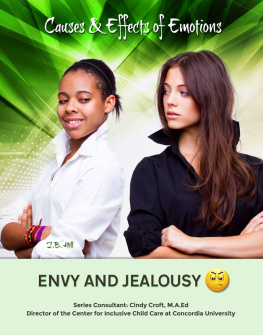
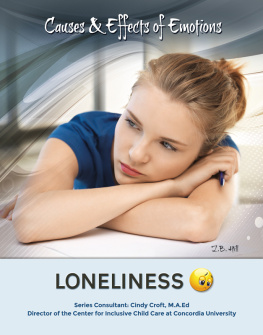
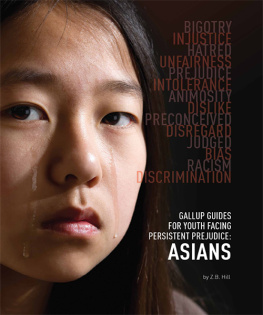
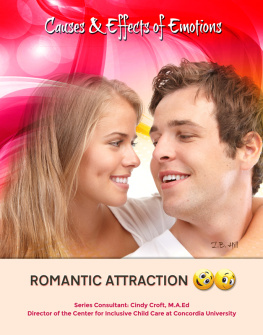

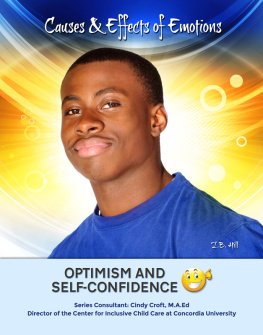
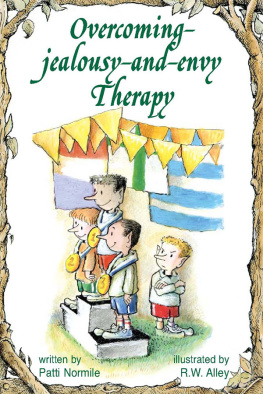
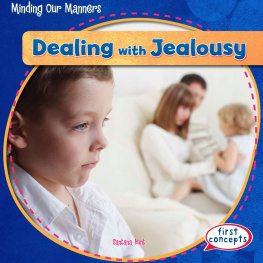
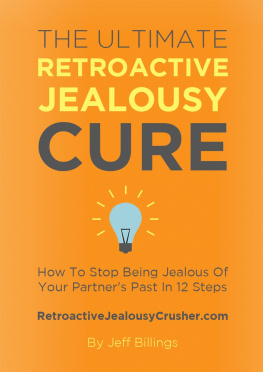
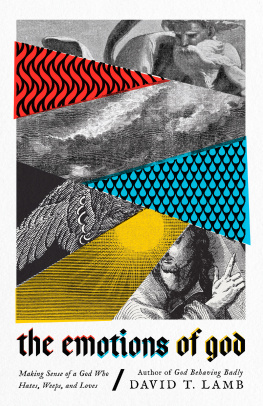
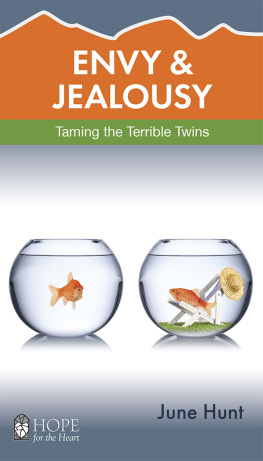

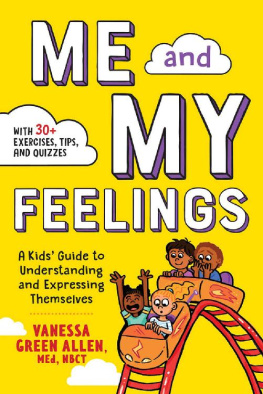
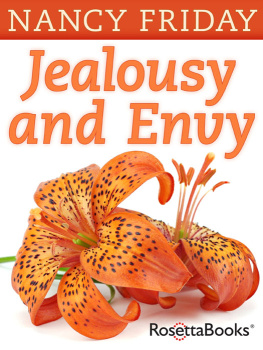



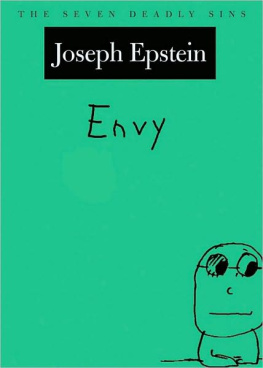





 secure: Feeling safe and unthreatened.
secure: Feeling safe and unthreatened.
